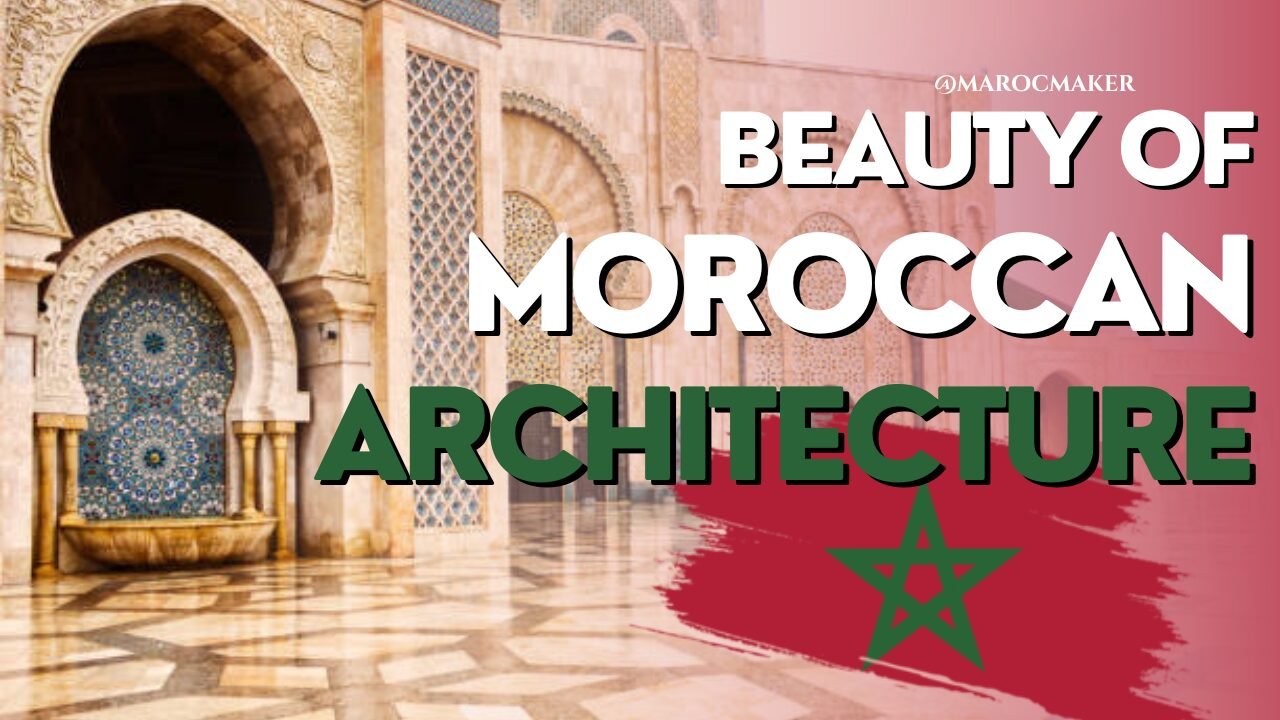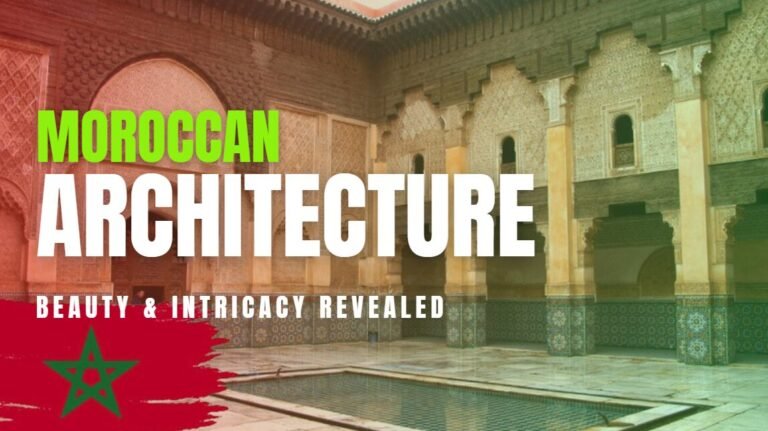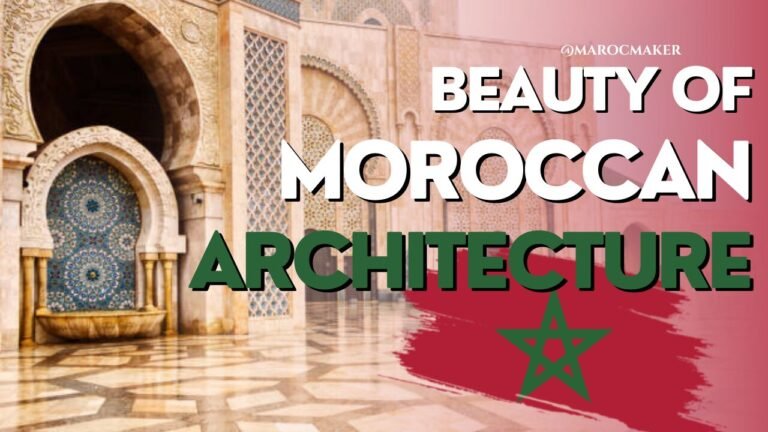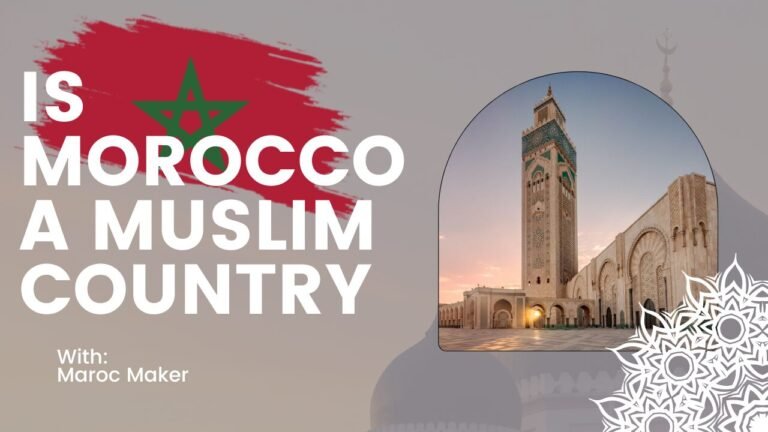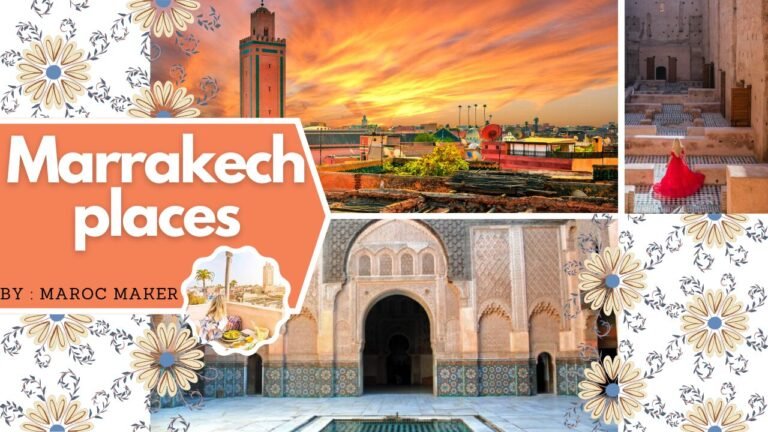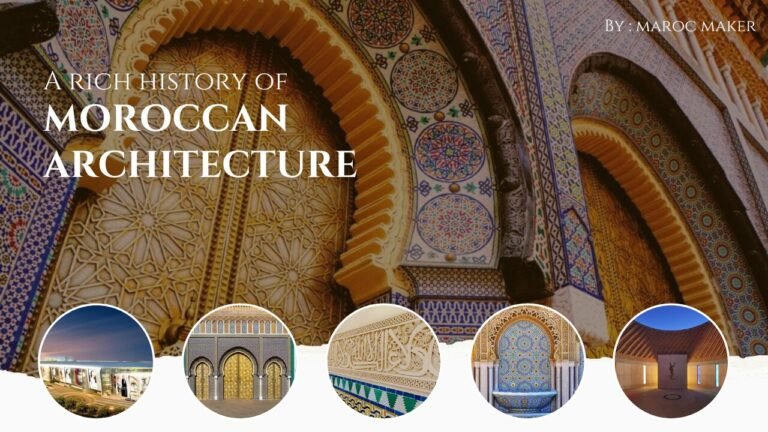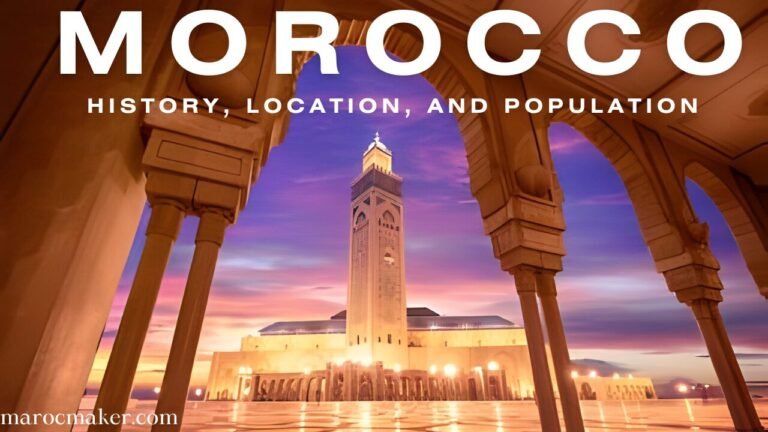Morocco is a country magnificently diverse in art, culture and natural landscapes. The sun sets on a soil rich in red clay and everything seems obliterated. But within this initially disorientating and even bleak image is a wealth of inspiration, color and culture. The city and its surroundings have influenced fashion and interior design for the last fifty years. Beauty of Moroccan Architecture
There’s a reason Marrakech is referred to as “the hidden city. On a superficial level, it doesn’t correspond to classic standards of beauty. But in the big city of monochrome, there’s a hidden city, just through this door, just around the corner, a secregarden of breathtaking beauty, suggestive colors and bewitching patterns. Beauty of Moroccan Architecture
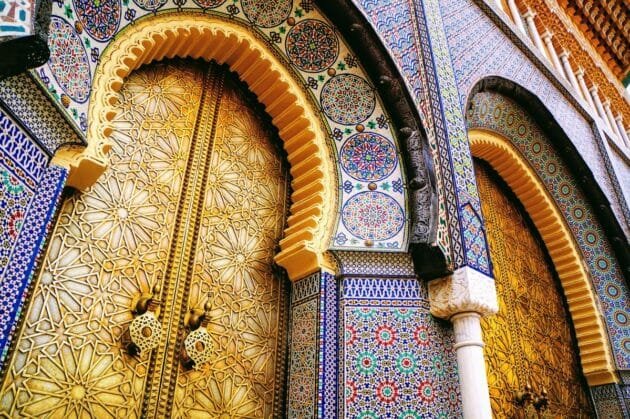
Most things are old and crumbling, surrounded by miles of the same red brick flooring. But step into a courtyard, behind any door, and you’re plunged into an oasis.
Inside and outside the dark pink walls that surround the old town, contemporary interpretations of traditional Moorish (and regional) design – drawing inspiration from the geometric patterns, heavenly arches and bright colors that have informed local architecture here for centuries – can be found in increasing numbers. Beauty of Moroccan Architecture
From the winding old souks of the medina to the hyper-chic boutiques of Guéliz, Marrakech is a city of striking contrasts. Donkeys haul loads of fresh mint, while Range Rovers stay outside luxury hotels. If there’s one constant, it’s the city’s distinctive sense of craftsmanship – thanks to leather tanners, woodworkers, weavers and other artisans.
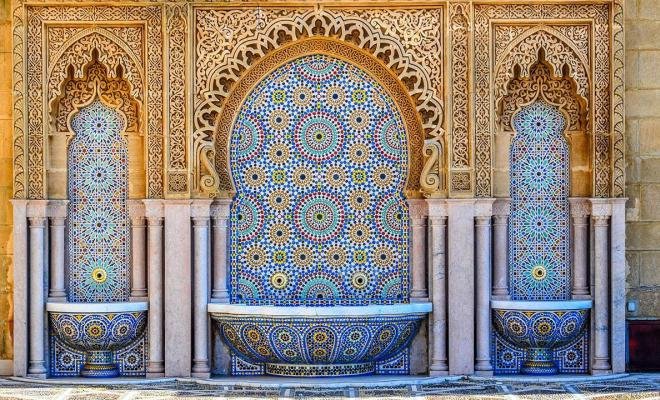
Today’s interior design trends emphasize color, pattern, geometric shapes, interesting textures and worldly eclecticism All of these things have long been apparent in Morocco, the country where Marrakech is based. The country’s textile and architectural art is like a hub from which all these design trends are spokes in today’s wheel of taste. Beauty of Moroccan Architecture
The sky’s the limit with Moroccan or geometric motifs, colorful patterns inspired by them. You can add a touch, like with throw pillows or a rug, or you can layer the pattern, set color against color. These colors are invigorating. By using patterns along these lines, your space becomes an oasis in which to recharge.
From Morocco’s Past to Your Home: The Enduring Power of Design
Morocco’s richly structured past has been appropriated by today’s designers and will continue to go strong in the future. And why shouldn’t it? When you enter the door at home, you should feel happy, relieved. A calm, collected energy should easily move through you. We’re discovering how colors and patterns can contribute to this sense of well-being; it’s something the Imazighen and other Moroccans struck long ago. Beauty of Moroccan Architecture
Patterns improve everyday life. Something like this Kohler Marrakech design on Camber under the sink (from Hudson Valley boutique hotel Glenmere Mansion) transforms a mundane task like washing your hands into an opportunity to meditate and nourish yourself with beauty.
From Tourists to Trendsetters: How Marrakech Sparks Creative Ventures
In recent years, many people visiting the city have been inspired to take a new direction in their lives and start a business adventure. Beauty of Moroccan Architecture
Caitlin and Samuel Dowe-Sandes are American expats with incredible style. They decided to leave their hectic lives in LA for a year-long retreat in Marrakech. Two months later, they established Popham Design, a business that creates cement tiles with simpler, more geometric designs that are influenced by regional patterns and color schemes. The designs are really modern and chic, but always seem to suit the environment. They also decided to make a home there. Elle Decor did a story on them and this house. Their exquisite living room where they used of their own tile and deliver on that key word we use when discussing Marrakech, “oasis.”
Ella Jones, founder of A New Tribe, a housewares store in East London, has witnessed much of this new wave. Having fallen “in love with rugs and craft culture” while on vacation, she now runs a store offering independent-brand creations and tries to visit the souks two or three times in a normal year to source homewares and vintage pieces, including rugs. “Most of what I sell is one-of-a-kind,” she says. “I love the way you emerge from a three-and-a-half-hour flight from London and find yourself in another world.”
For those who want to invoke a little Moroccan magic in their home, Design & That’s co-founder and interior designer Emma Shone-Sanders points to Bauwerk’s lime paint in “Marrakech”, a chalky pink hue evoking the look of faded tadelakt plaster, “It’s a natural lime finish that’s more subdued than bright and poppy,” she says. Her final words of wisdom are to keep it simple by adding a few accessories that liven up a room. “It doesn’t have to be overtly colorful. It can simply be about adding texture with a rug or contrasting a vase with a whitewashed wall.”
Beyond the Walls: The Enchanting Details of Marrakech Design
One thing’s for sure wherever you enter Marrakech, and you enter this city of luxury Marrakech villas, one of the riads in the medina, you’ve probably seen the ceramic puzzle of shapes on your floor or bathroom walls, elaborate geometric patterns and ornate Islamic calligraphy of Koranic verses that make you feel far removed from the world you’ve known.
What’s more, Marrakech is filled with exquisite architectural gems that tell the intriguing story of a country that has continually welcomed and absorbed different cultures, lifestyles and beauty that makes you experience Morocco by simply walking around. Beauty of Moroccan Architecture
With so many options, locating the perfect piece can be an enjoyable challenge. One possibility is to try echoing simple patterns, so that the lines sound one over the other.

